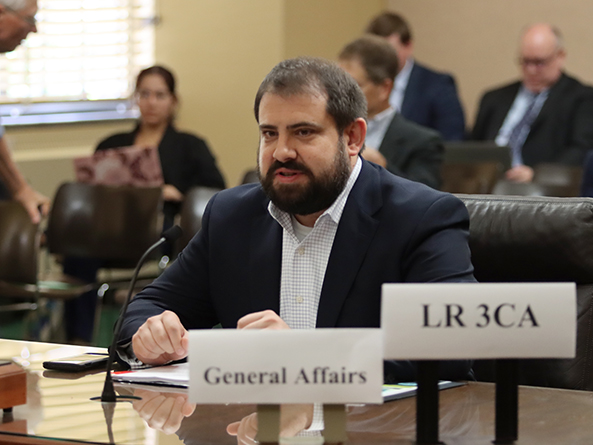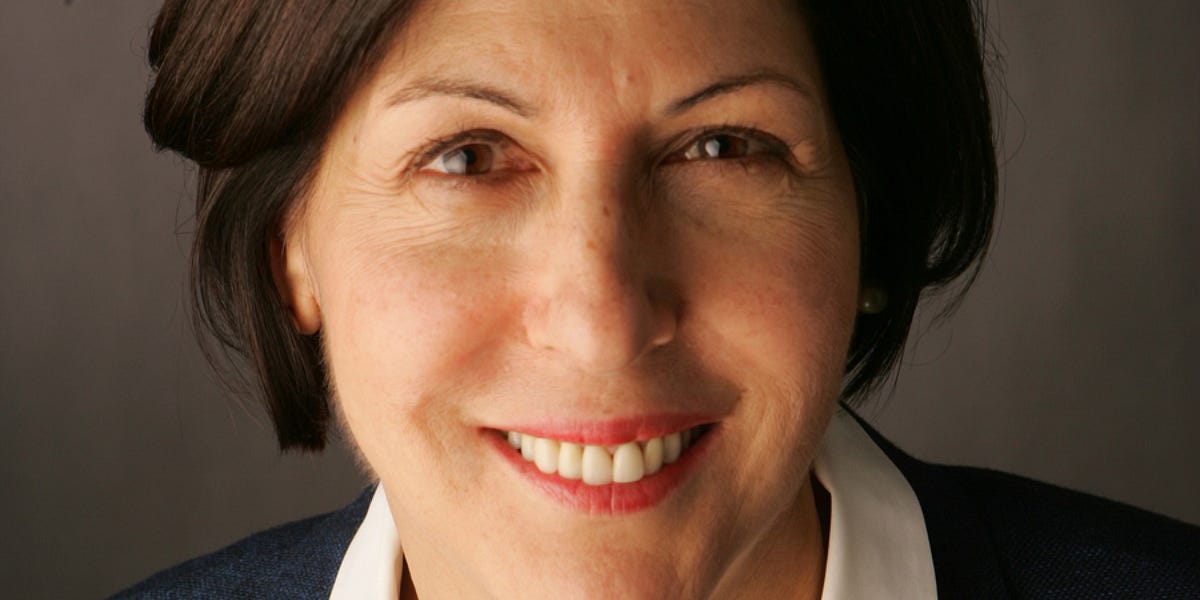Sports
Mobile sports betting proposals considered

The General Affairs Committee heard testimony July 31 on two proposals that would authorize sports wagering through mobile platforms in Nebraska.
” data-image-caption=”
Sen. Eliot Bostar
” data-medium-file=”https://update.legislature.ne.gov/wp-content/uploads/2020/12/SenBostar_inline-200×300.jpg” data-large-file=”https://update.legislature.ne.gov/wp-content/uploads/2020/12/SenBostar_inline.jpg” class=”size-medium wp-image-28752″ src=”https://update.legislature.ne.gov/wp-content/uploads/2020/12/SenBostar_inline-200×300.jpg” alt=”Sen. Eliot Bostar” width=”200″ height=”300″ srcset=”https://update.legislature.ne.gov/wp-content/uploads/2020/12/SenBostar_inline-200×300.jpg 200w, https://update.legislature.ne.gov/wp-content/uploads/2020/12/SenBostar_inline.jpg 297w” sizes=”(max-width: 200px) 100vw, 200px” />
LR3CA, introduced by Lincoln Sen. Eliot Bostar, would place a proposed constitutional amendment on the 2024 general election ballot. If approved by voters, the proposal would allow mobile or electronic sports betting at an authorized gaming operator within a licensed racetrack enclosure, if the individual is within Nebraska’s borders at the time the wager is placed.
LB13, a companion bill also sponsored by Bostar, would alter deadlines in state law to allow LR3CA to be placed on the November ballot. It also would impose a tax on online sports wagering revenue, to be distributed as follows:
• 3% to the Compulsive Gamblers Assistance Fund;
• 3.5% to the Racing and Gaming Commission’s Racetrack Gaming Fund;
• 3.5% to the Racing and Gaming Commission’s Racing Cash Fund; and
• 90% to the Property Tax Credit Cash Fund.
The measures would keep Nebraska from losing roughly $36 million in annual revenue to Iowa and other states where mobile wagering is legal, Bostar said, money that could be put toward property tax relief.
While acknowledging that gaming comes with societal costs, Bostar argued that online betting is already happening and that legalizing it would bring in additional funds to help those who suffer from gambling disorders. In addition, he said, polling data shows that 65% of Nebraskans approve of legalizing online wagering if the proceeds are used for property tax relief.
“I think the best way to find out if Nebraskans want something or not is to let them vote on it,” Bostar said.
Lance Morgan, CEO of Ho-Chunk, Inc., parent company of WarHorse Gaming, testified in favor of LR3CA. Mobile sports betting is legal in 30 other states, he said, and eight more are considering allowing it.
Morgan said geofencing blocked more than 4 million attempts to place online bets in Nebraska last year, indicating a strong interest in mobile wagering. Legalizing mobile betting in the state would allow lawmakers to put parameters around the practice, he said, and benefit from the revenue generated.
“This is new tax revenue; it’s not a shift,” Morgan said.
Danny DiRienzo, representing GeoComply, testified in favor of both proposals. He said the company, which provides geolocation and compliance services for online sports betting companies, found that many people left Nebraska to place online bets last year.
For example, the company tracked 500,000 geolocation compliance checks from a cornfield near the Iowa border, he said, likely all of which were Nebraskans crossing into Iowa to place mobile bets.
“I don’t know if this is the busiest cornfield in the U.S., but I suspect it is,” DiRienzo said.
Former University of Nebraska football coach Tom Osborne opposed LR3CA, saying it would not produce a “net benefit” to Nebraska taxpayers. He said research shows that gambling revenue costs states $3 for every $1 brought in due to increased rates of crime, bankruptcy and divorce, among other social ills.
Osborne also suggested that college athletic contests can become “more of a gambling exercise than a sporting exercise” when people can place bets online as games are happening. The result, he said, is excessive pressure on student athletes.
Gambling with the Good Life director Pat Loontjer also testified in opposition to the proposed constitutional amendment. Backers of a recent successful effort to allow casinos in Nebraska also did so on the promise of property tax relief, she said, which hasn’t materialized.
“Nebraskan’s deserve real solutions,” Loontjer said.
Nate Grasz of the Nebraska Family Alliance testified against both proposals. Nebraska shouldn’t rely on gaming revenue for property tax relief, he said, in part because it is unsustainable. More than 50% of online revenue comes from addicted gamblers, he said, who cannot and should not be relied upon to provide a revenue stream for the state.
“We’re not going to gamble our way out of our state’s property tax problem,” Grasz said. “Not at the expense of our kids and not on the backs of our student athletes.”
The committee took no immediate action on either proposal.











